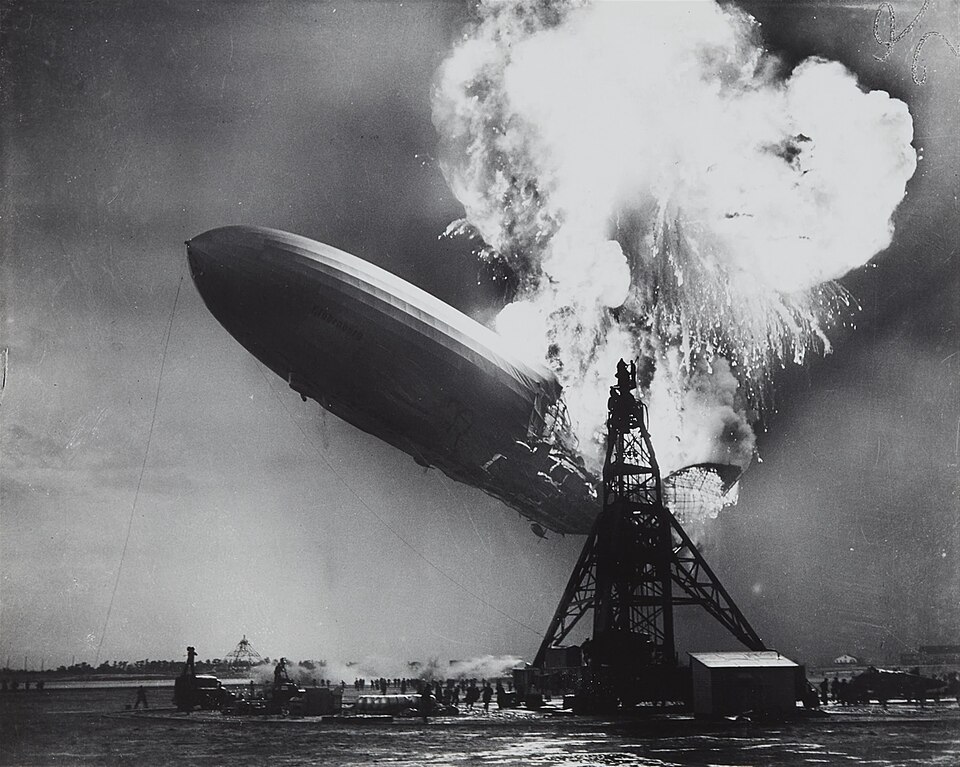Good morning.

Tuesday in Whitewater will be sunny with a high of 75. Sunrise is 5:42 and sunset is 8:01, for 14 hours, 19 minutes of daytime. The moon is a waxing gibbous with 70 percent of its visible disk illuminated.
The Whitewater Unified School District’s Finance Committee meets at Noon. Whitewater’s Alcohol Licensing Committee meets at 5:30 PM, and the Whitewater Common Council meets at 6:30 PM.
On this day in 1937, the German zeppelin Hindenburg catches fire and is destroyed within a minute while attempting to dock at Lakehurst, New Jersey. Thirty-six people are killed.

Tariffs are taxes, and those taxes will affect the demand for goods, and so affect the supply of goods, and the ability to supply them:
Stock markets plunged for days after President Donald Trump announced steep tariffs on imports from around the world. The sell-off ebbed only when he suspended most, but not all, of the new measures for 90 days. The ticker tape is just one indicator of an economy, and other signs are growing more and more ominous—including at the Port of Los Angeles, where high tariffs on China are crushing maritime traffic. “Essentially all shipments out of China for major retailers and manufacturers have ceased,” Eugene Seroka, the executive director of the port, said on April 24.
The economy, and the supply chains that allow it to function, can adjust fairly quickly to certain shocks, including weather disasters and even a pandemic. Early in the COVID shutdowns, toilet paper was in short supply as Americans spent more time at home and less at workplaces and schools. The problem eased as manufacturers ramped up production, transportation systems adapted, and consumer anxiety decreased.
But Trump’s trade war is different because it is unpredictable and indefinite. Even if he were to renounce tariffs tomorrow, Trump has already shaken global confidence in American economic-policy making. No one can comfortably make business decisions based on what he does.
….
Tariffs don’t just reduce the flow of goods coming into the country; they also cause an atrophying of the logistics system that moves products into, out of, and around the United States. “Less cargo volume, less jobs. That’s the rule here,” Mario Cordero, CEO of the Port of Long Beach, said recently, describing how one in nine jobs in the greater Los Angeles region arises directly or indirectly from its ports. “Port complexes are like your baby toe on your foot,” Peter Neffenger, the former commander of the Coast Guard sector that includes Los Angeles and Long Beach, told me. “You don’t think about it until you break it one day and realize, ‘I can’t walk.’”
See Juliette Kayyem, Don’t Look at Stock Markets. Look at the Ports (‘A drop in maritime traffic suggests that the worst is yet to come’), The Atlantic, May 3, 2025.
It’s not true that with tariffs all items will be available at a higher price (or that consumers will bear those prices); some items won’t be available.
A successful bald eagle release:
